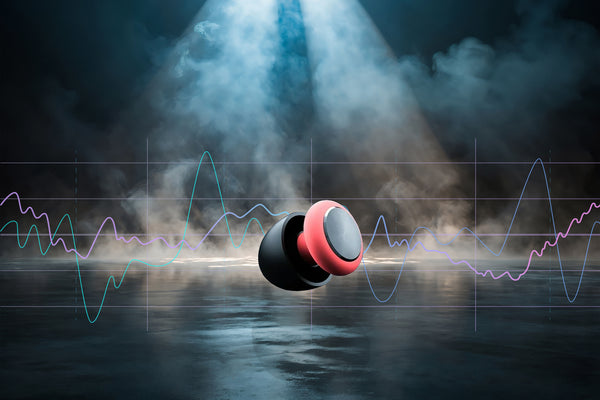How Tinnitus Affects Musicians & What You Can Do to Prevent It
The Ringing That Never Stops
For many musicians, tinnitus starts as a temporary ringing after a loud gig or studio session. But over time, this ringing doesn’t go away—it becomes a permanent, intrusive noise that never stops.
Tinnitus is a serious occupational hazard for musicians, producers, and sound engineers. It affects your ability to hear subtle details, mix accurately, and enjoy music the way you used to. Once it sets in, there is no cure, which is why prevention is critical.

What is Tinnitus?
Tinnitus is the perception of ringing, buzzing, hissing, or whistling sounds in the ears, even when no external sound is present. It occurs when the tiny hair cells in the inner ear are damaged by prolonged noise exposure, sending faulty signals to the brain that result in constant background noise.
Common Symptoms:
-
Ringing, buzzing, or hissing sounds that don’t fade.
-
Fluctuating intensity – Some days it’s mild, others it’s overwhelming.
-
Struggles with sound clarity – Speech and music can seem distorted.
- Disrupted sleep & concentration – The constant noise makes it harder to relax or focus.
How Tinnitus Impacts Musicians
-
Difficulty Hearing High Frequencies – Over time, tinnitus makes it harder to distinguish treble details and harmonics in music.
- Mixing & Performing Becomes Unreliable – Ringing interferes with EQ adjustments, pitch accuracy, and overall sound perception.
-
Increased Sensitivity to Loud Sounds – Tinnitus can lead to hyperacusis, where everyday sounds feel painfully loud.
- Struggles with Sleep & Mental Health – The constant noise can cause stress, anxiety, and insomnia.
How Musicians Can Prevent Tinnitus
-
Wear High-Fidelity Earplugs – Protect your ears while maintaining sound clarity. Reducing harmful decibel levels is the best way to prevent tinnitus.
-
Take Listening Breaks – Following the "60/10 rule" (60 minutes of playing, 10 minutes of silence) helps ears recover.
-
Monitor Volume Levels – Whether using studio monitors, headphones, or in-ear monitors, keep levels at a safe range.
-
Get Regular Hearing Tests – Early detection of hearing damage allows musicians to adjust habits before permanent damage occurs.
- Manage Stress & Sleep Well – Poor sleep and high stress worsen tinnitus perception. Prioritizing rest helps with ear recovery.
Protect Your Ears Before It’s Too Late
Tinnitus doesn’t go away, but it can be prevented. Musicians who take their hearing seriously will be able to create, perform, and enjoy music for decades to come.
🎧 Don’t wait until the ringing starts. Grab Your Spares.

